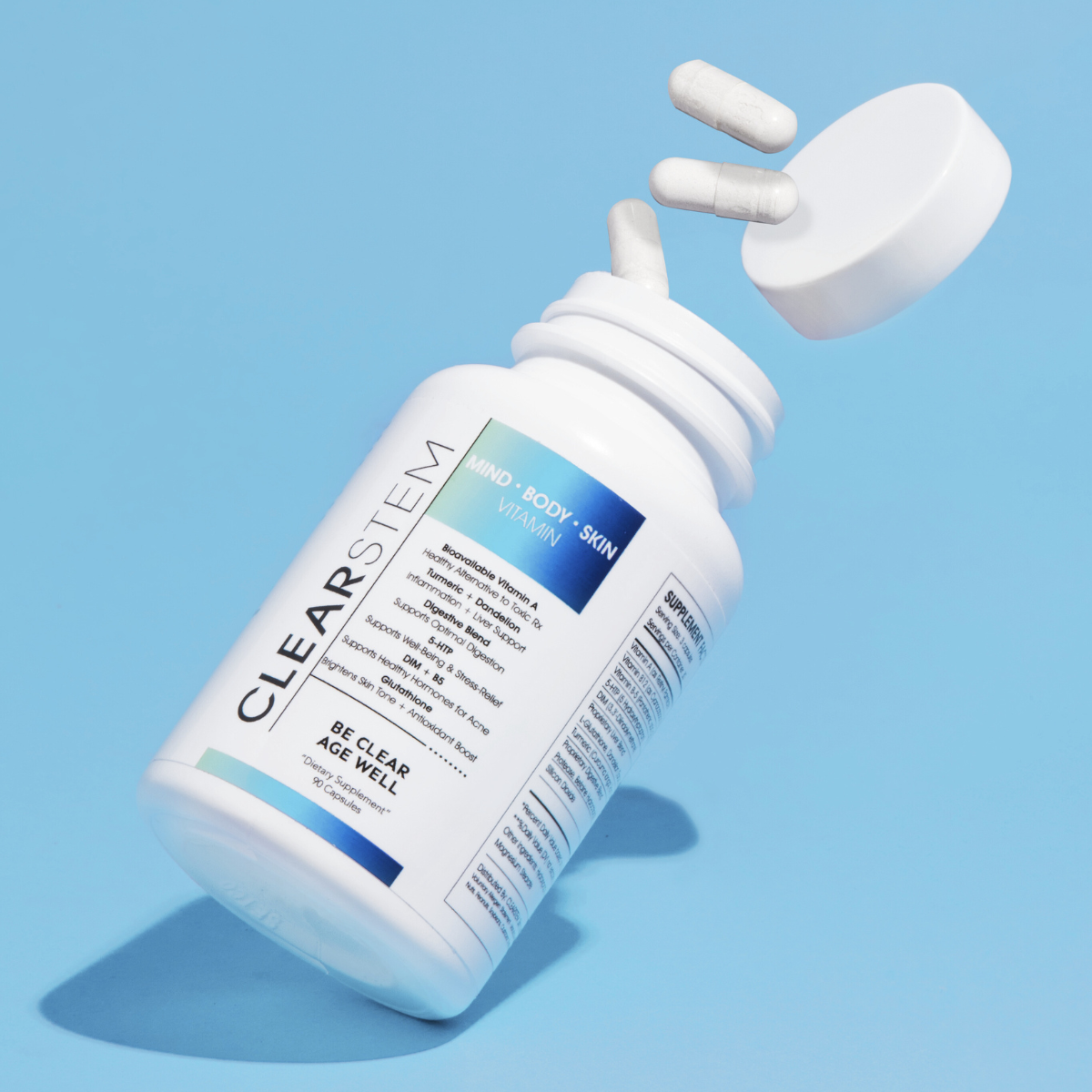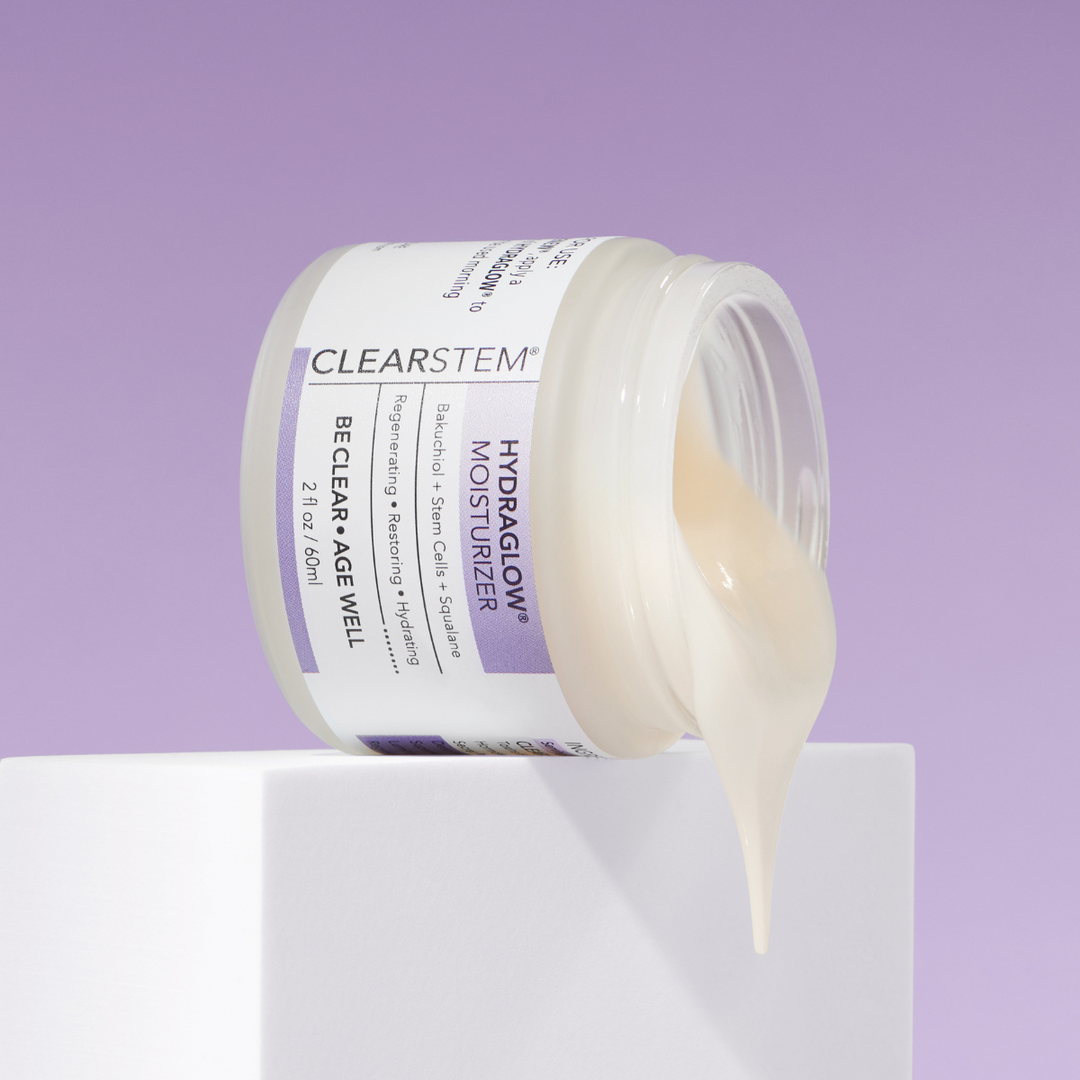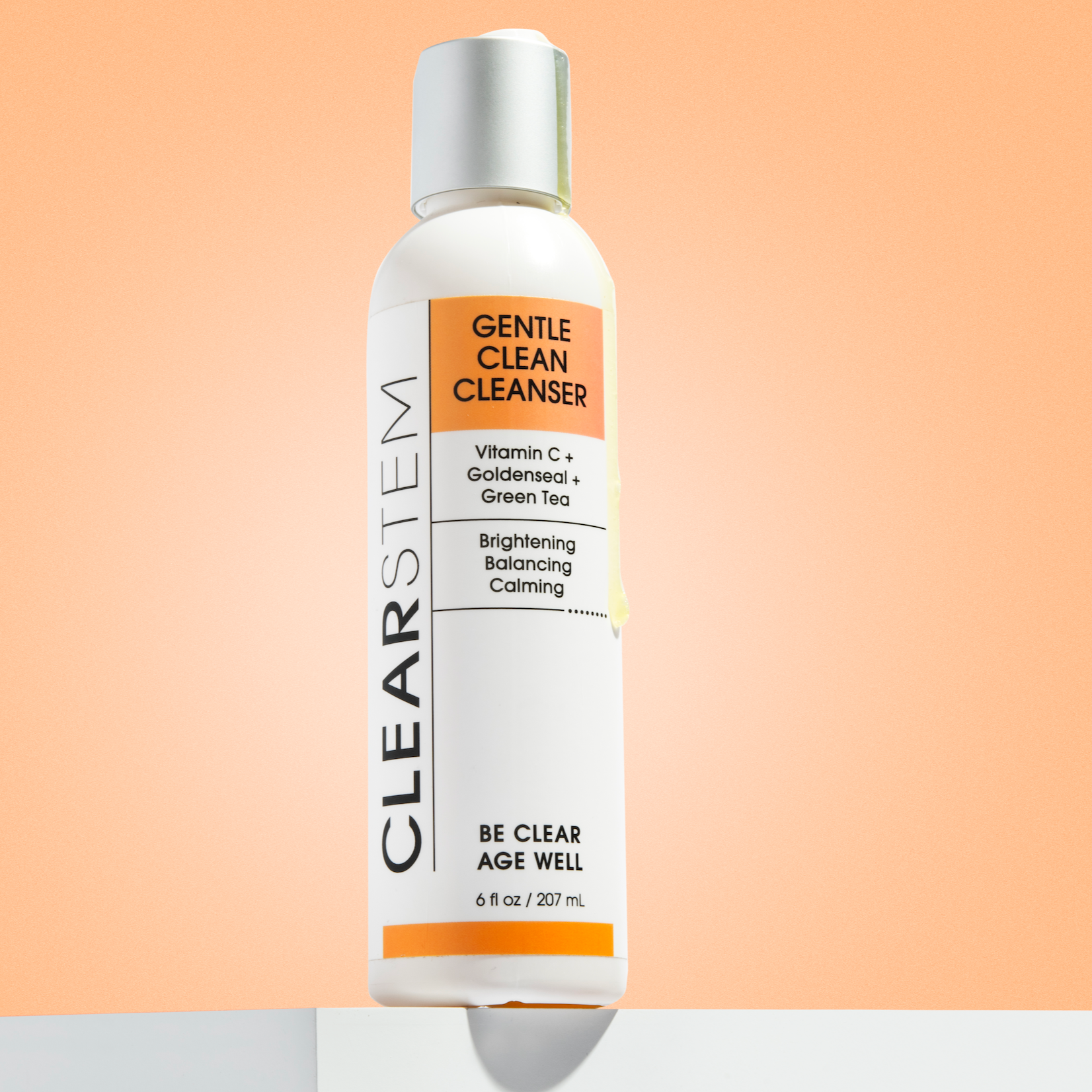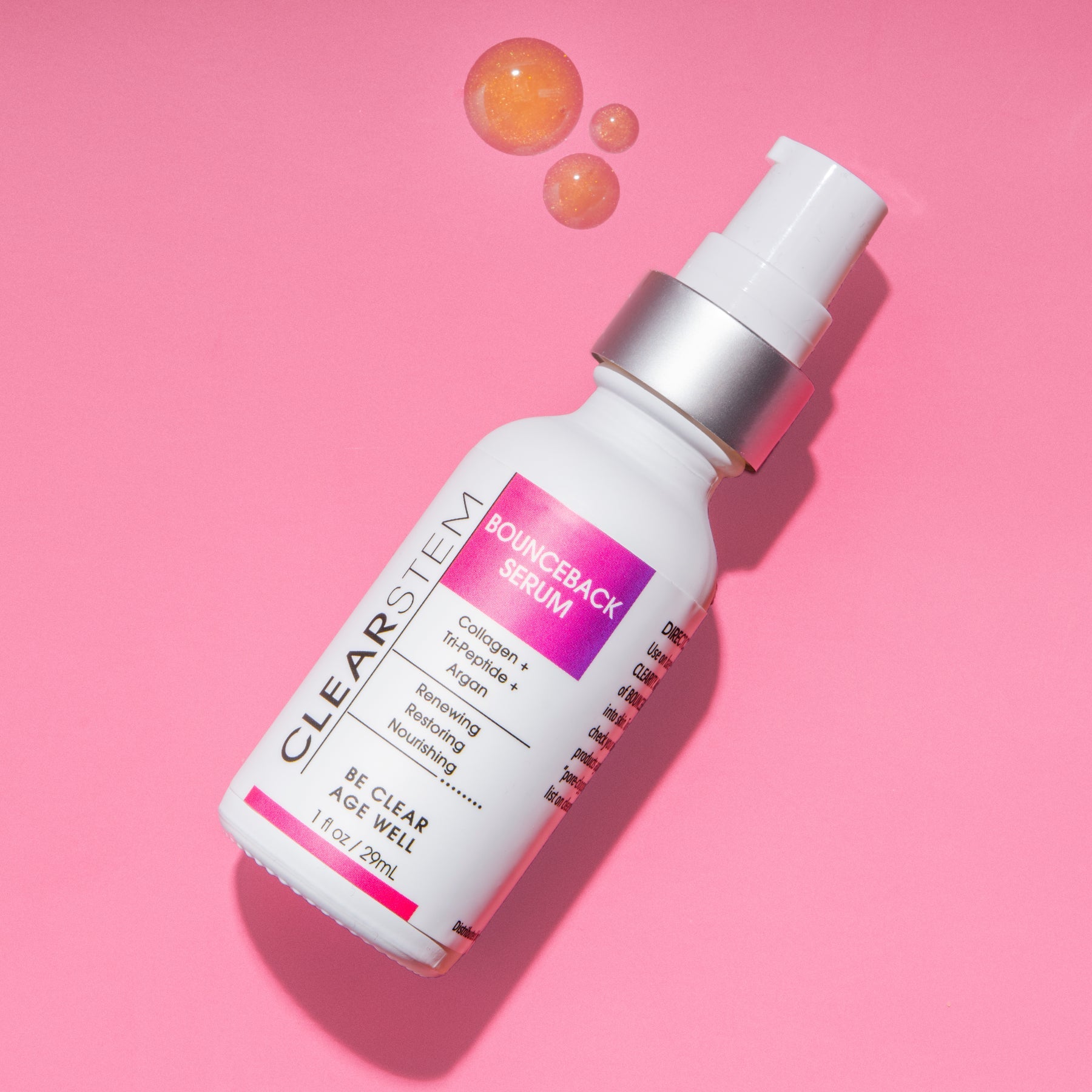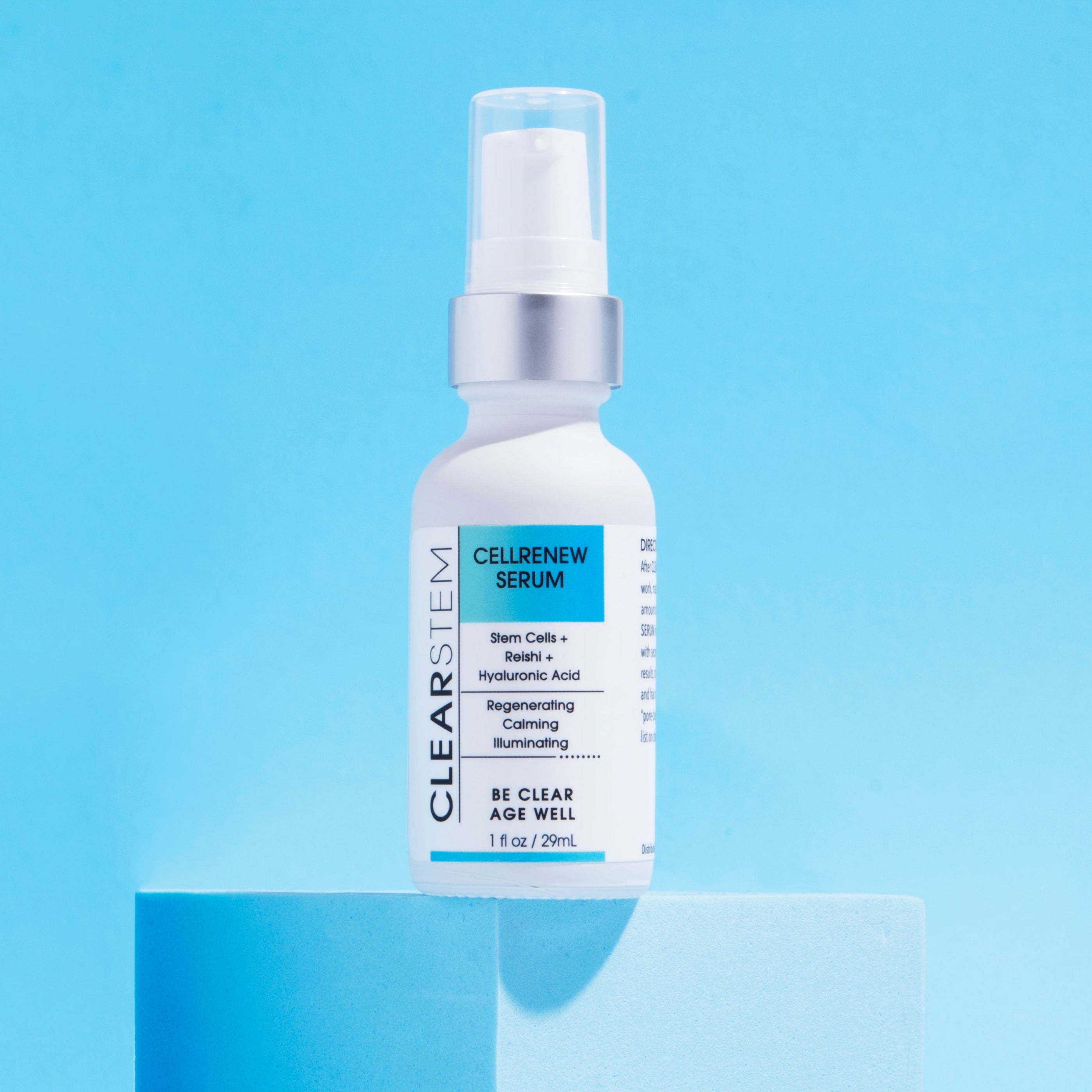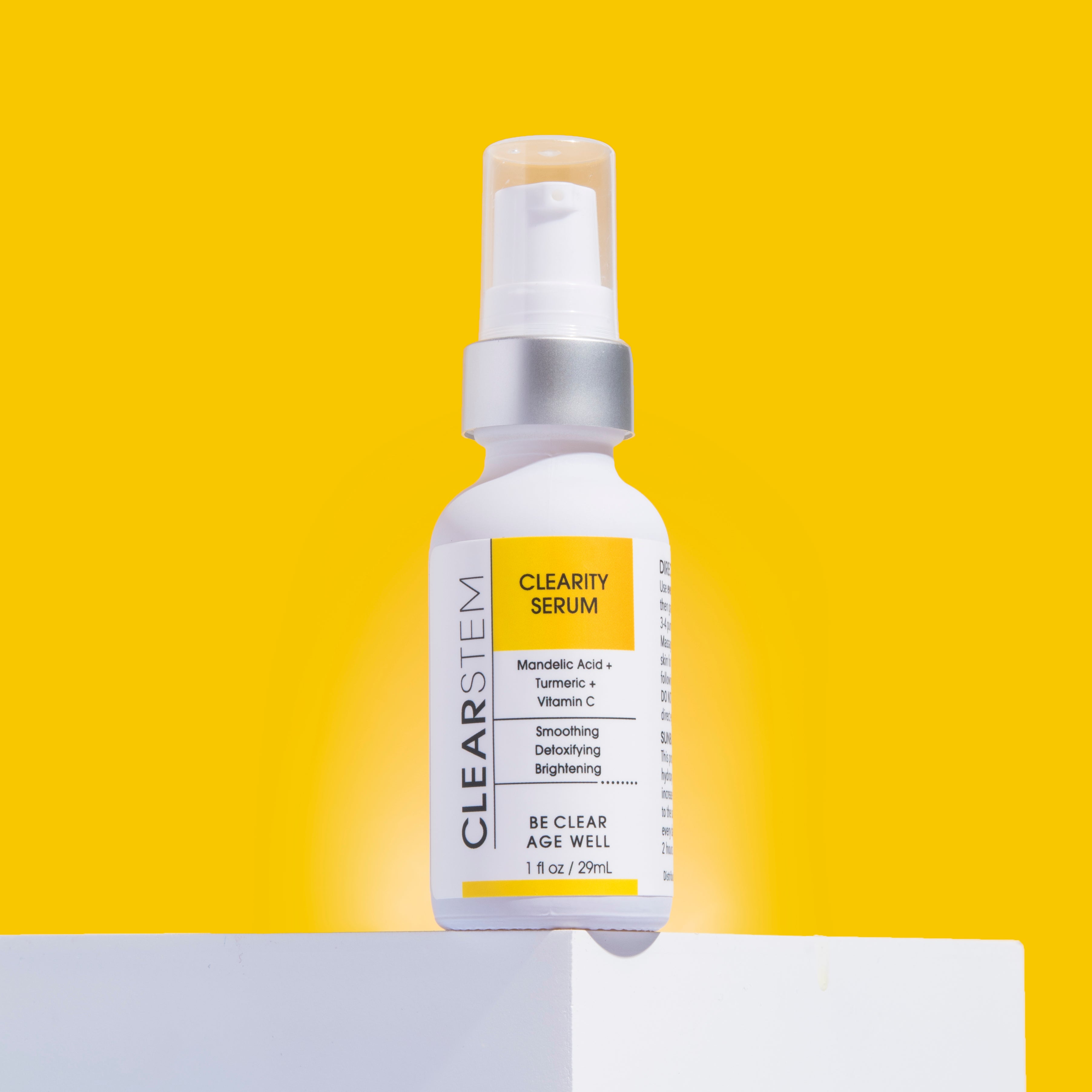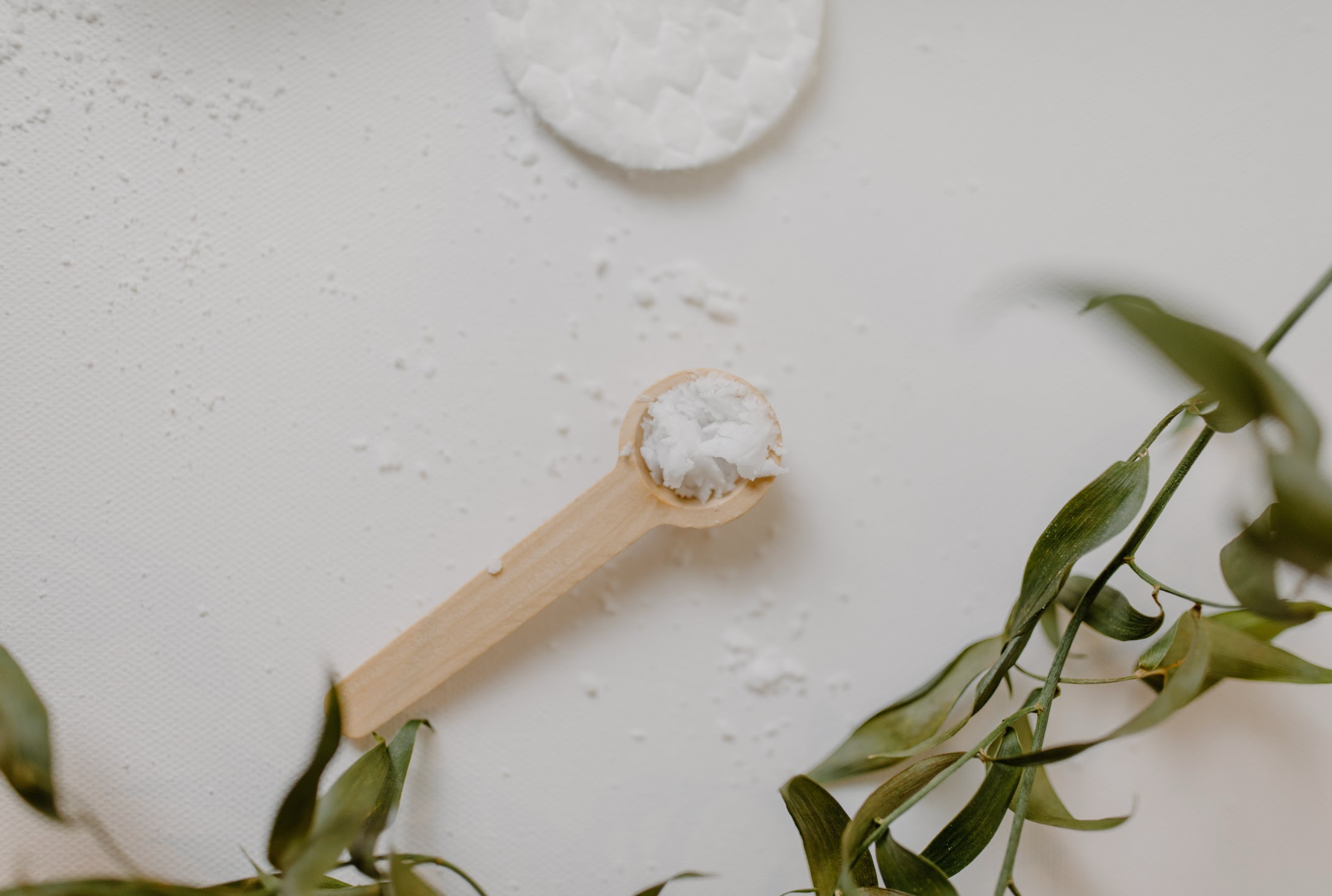It happens every month like clockwork. You wake up one morning, look in the mirror, and find a red, angry bump festering on your chin.
The dreaded PMS pimples.
If you experience deep, painful period acne, you’re not alone. In fact, up to 80% of menstruating women have acne during PMS. Painful and frustrating, these breakouts can leave you reaching for any quick acne treatment solution. But pause before you scrub your face off—harsh ingredients and medications aren’t the only treatment for your pimples.
Skincare for acne-prone skin isn’t a one-size-fits-all solution. However, there are natural approaches to help manage and minimize premenstrual acne without any irritation or peeling. You can also consider functional lab testing to uncover the root cause of your acne. Discover these top tips on treating acne before period week hits.
What is Premenstrual Acne?
“PMS acne,” or premenstrual acne, is actually a type of hormonal acne. As your body cycles through each menstrual month, you’ll experience shifting hormone levels. Unfortunately, this hormonal fluctuation can leave your skin bothered and sensitive, especially before your period starts. These pimples are nestled deep under the skin and can be downright painful. Why do pimples hurt?
During PMS week, your testosterone and progesterone levels rise while your estrogen levels drop. Since both progesterone and testosterone increase skin sebum production, your skin may get more oily—leaving you with more pimples. Paired with trapped dirt and acne-causing bacteria, inflammation follows suit that can cause pimples to hurt. However, certain other factors may exacerbate this hormonal effect that also causes adult acne, such as:
- Stress
- Poor sleep
- Diet
- Exercise
- Poor hygiene
- Health conditions
- Medications (like the birth control pill)
How to Prevent Acne Before Period Naturally
When those angry, red cysts appear monthly, it can really bring the mood down. Luckily, you don’t have to be stuck in skin purgatory every month.
Holistic hormonal acne solutions are more than a skincare trend. These natural ingredients and methods address hormonal balance shifts at the root without excess irritation or side effects. Let’s explore the top methods on how to treat hormonal acne naturally.
Hormonal Acne Supplements
Consider supplements like boosters for your skincare arsenal. Supplements can balance your hormones and supply your skin with the substances it needs.
In the world of skincare, some substances stand out above the rest. Consider a hormonal acne supplement with these ingredients to prevent and calm PMS acne:
- Turmeric – A favorite Indian ayurvedic medicine, turmeric is a powerful anti-inflammatory substance. When taken orally, the spice’s curcumin levels may ease inflammation that causes acne.
- DIM – Known as diindolylmethane, DIM is a hormonal balancer, flushing out excess androgens and stimulating digestive enzymes. Supplementing DIM may indirectly stop those PMS hormonal fluctuations that trigger acne.
- Vitamin B5 – Found in beef and avocados, vitamin B5 supports metabolism and nourishes the skin. One study found that oral vitamin B5 supplements significantly reduced acne in participants in as little as 12 weeks.
Nutrition
You are what you eat—and this rings true when it comes to your skin.
A well-balanced and nutrient-rich hormonal acne diet is key to soothing and preventing premenstrual breakouts. Foods that spike blood sugar (such as sweets or white bread) encourage hormonal shifts, increasing inflammation and sebum production. Additionally, dairy may trigger hormonal acne by directly passing hormones from the cow to your body.
While every individual has specific dietary needs, these glow-ifying foods can support your hormones and skin health during PMS:
- Vegetables
- Fruits
- Lean proteins
- Fibrous grains
- Omega-3 fatty acids (such as salmon or walnuts)
- Probiotic-rich foods
PRO TIP: it's very important to avoid inflammatory foods during PMS as they will have a more significant impact on your skin, these include fried foods, gluten, most dairy products, and excessive sugar.
A Simplified Skincare Routine
Your skin is a precious organ, requiring gentle care and attention—especially during PMS. CLEARSTEM Skincare specializes in hormonal acne breakouts to help minimize acne flare-ups while simultaneously targeting acne scars and anti-aging concerns. Establishing a consistent and effective skincare routine can help prevent acne before it appears on your face.
To start, choose products free of harsh irritants. Soothing and gentle natural ingredients can prevent further irritation when your face is inflamed from acne. Then, build a routine that’s simple yet effective, caring for your skin’s needs with these steps:
- Cleansing – Gently cleanse your face twice daily to remove excess oil, dead skin cells, and bacteria that can clog pores. Opt for a mild cleanser to maintain your skin’s essential sebum levels.
- Exfoliation – Forget the beaded scrubs. To eliminate dead skin that clogs pores, chemically exfoliate your skin once or twice a week with a natural acid, like mandelic acid or lactic acid.
- Treatment – If needed, calm skin with an anti-inflammatory or oil-balancing topical solution. A soothing collagen serum with ingredients like turmeric and saw palmetto can bring PMS skin to a calmer place.
- Moisturization – Hydration is crucial, even for oily and acne-prone skin, as it can help your skin regenerate and heal lesions. Use a lightweight, non-comedogenic face moisturizer to keep your skin hydrated without exacerbating acne.
The best tip of all? Do not pick. It may be tempting to pop those pimples, but it can lead to more pimples or scarring.
Say Goodbye to Pre-Period Pimples with CLEARSTEM Skincare
Acne isn’t a single-cause condition—and it’s not a single-solution condition, either. If you’re tired of irritating treatments, then these natural paths may be your new acne solution. By holistically addressing hormonal shifts, you can both treat and prevent period acne for glowing skin all month long.
Not all clean skincare is made with integrity and quality. That’s where we come in.
At CLEARSTEM, our non-comedogenic products are built for long-term skin health (not just quick results). From turmeric to mandelic acid, we use research-backed, natural ingredients that deliver a glow that shines from the inside out.
Ready to find your clear path? Start by building a soothing skincare routine for acne-prone skin with our collection designed for simplicity.
Sources:
- Verywell Health. How the Menstrual Cycle Affects Acne. https://www.verywellhealth.com/is-premenstrual-acne-real-15686
- Cleveland Clinic. Hormonal Acne: What Is It, Treatment, Causes & Prevention. https://my.clevelandclinic.org/health/diseases/21792-hormonal-acne
- Practical Dermatology. Turmeric, Curcumin, and Curcuminoids: A Dermatologic Review. https://practicaldermatology.com/articles/2020-oct/turmeric-curcumin-and-curcuminoids-a-dermatologic-review
- Byrdie. This Little-Known Supplement Stopped My Hormonal Acne Breakouts For Good. https://www.byrdie.com/dim-hormonal-acne-4691308
- NIH. A Randomized, Double-Blind, Placebo-Controlled Study of a Novel Pantothenic Acid-Based Dietary Supplement in Subjects with Mild to Moderate Facial Acne. https://www.ncbi.nlm.nih.gov/pmc/articles/PMC4065280/
- NIH. Low glycaemic diet and metformin therapy: a new approach in male subjects with acne resistant to common treatments. https://pubmed.ncbi.nlm.nih.gov/26053680/
- American Academy of Dermatology. Can the right diet get rid of acne? https://www.aad.org/public/diseases/acne/causes/diet

